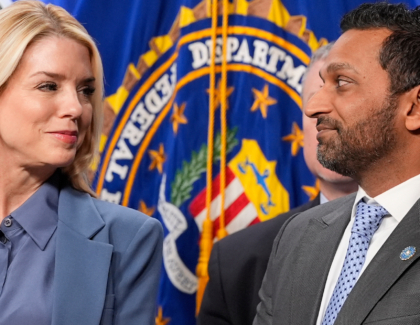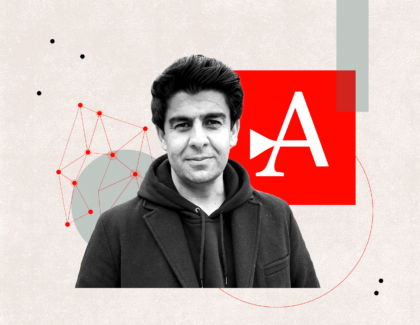Sign up for the daily CJR newsletter.
Last week, four hours of footage of Alex Jones, of InfoWars, surfaced on YouTube. The conspiracy-theory promoter didn’t upload the videos himself. Instead, Jones appears in four hours of video footage in a taped deposition, in which he tries to explain why he spent years falsely claiming that the Sandy Hook shooting in Newtown, Connecticut, was a hoax. The deposition was released to HuffPost and uploaded to YouTube by law firm Farrar & Ball. Nine family members of loved ones who died in the Sandy Hook shootings in 2012 are suing Jones, including Scarlett Lewis, who is suing Jones for intentional infliction of emotional distress. (Lewis is represented by Mark Bankston of Farrar & Ball.)
It’s been a moment of intense media scrutiny for Jones, who has a penchant for off-the-cuff monologues and bloviation. In February, Connecticut Judge Barbara Bellis ruled that Jones would have to answer questions in a deposition as part of the defamation lawsuit filed by Sandy Hook families against him. (Jones has repeatedly contested the defamation allegations.) In his taped deposition, Jones relies on ignorance and a lack of preparation as reasons for why he can’t answer basic questions; he does an about-face and says he now believes the Sandy Hook shooting to have happened. Still, he can’t help himself: he is defiant throughout the deposition, lacking remorse when he’s asked about the time he made the address of Sandy Hook father Leonard Pozner public. (“I mean, the guy’s running an anti-free speech foundation,” Jones quips. Pozner is not running an anti-free speech foundation.) He doubles down on the same falsehoods he spread about Sandy Hook, and he reveals his sources to be YouTube and 4Chan.
ICYMI: Students wrestle with the cost of free speech online
Much of the media coverage of Jones’s deposition has thus far focused on his excuse for spreading conspiracy theories. He told lawyers during his deposition that he had a “form of psychosis” that made him believe the Sandy Hook shooting was staged. (This is an old trick: in 2017, during his child custody trial, Jones claimed that his Infowars persona was “performance art.”) Pozner makes an appearance in an episode of This American Life, released in mid-March, shortly before Jones’s testimony was made public. The episode described the origin story of Jones, of InfoWars, the spread of Sandy Hook conspiracy theories, and how Jones had made Pozner’s life hell in the wake of Pozner’s son’s death. After Jones’s deposition was released, Charlie Warzel wrote a piece for The New York Times about how Jones’s only real undoing has happened under oath. While tech platforms have enabled him over the years and allowed him to reach ever-wider audiences, the legal system might be the most effective means of defanging him, Warzel argues. Media could fact-check Jones, but while he had his own platforms, he had an audience, and no amount of fact-checking or Pinocchios could hold him to account. Under oath, Jones’s power dwindles.
Jones is arguably less powerful now without his platforms than he ever has been. In August, he was de-platformed, or had his accounts deactivated, from YouTube, Apple, Pinterest, LinkedIn, YouTube, and Spotify; in September, Twitter followed suit and banned Jones and InfoWars. The crackdown came not specifically because of Jones spreading conspiracy theories about Sandy Hook being a false-flag operation, but for promoting violence and hate speech across his platforms more broadly. Still, this likely won’t be the last we hear from Jones: the lawsuit that led to the release of his deposition video is just one of a number of suits filed against Jones by Sandy Hook families.
More on Alex Jones:
- This American Life’s illuminating episode about Jones’ origin story, and the effect InfoWars has had on one father of a child killed during the Sandy Hook shooting in 2012.
- The decision to ban Jones from tech platforms forced tech companies into a politicized battle over free speech and acceptable discourse. This was never more clear than when Twitter declined to follow its contemporaries’ footsteps and immediately ban Jones, sticking to its free speech principles, CJR’s Mathew Ingram wrote in August.
- Charlie Warzel on why courtrooms are kryptonite for conspiracy theorists like Jones: “But this new set of viral clips busts the myth of Alex Jones, presenting him in a situation he can neither engineer nor spin. He’s a man who has lost control of the narrative. And it’s this performance—more than any ruling from any judge—that poses the greatest threat to the Infowars empire.”
Other notable stories:
- Months before The New Yorker published allegations of sexual harassment against CBS News’s Jeff Fager, The Washington Post had the story but didn’t publish it, writes Irin Carmon, one of the women who had been reporting on the story. “I don’t believe there is just one reason the Post rejected the Fager story. I think it was a little of everything,” Carmon wrote. “I doubt I’ll ever really know. But much of my job has involved asking people, mostly women, to truthfully tell their stories even when it might harm them or the institutions they care about. I figured the least I could do was to try to do the same.”
- In conversation with Axel Springer CEO Mathias Döpfner, Mark Zuckerberg floated the idea of a “news tab to surface more high-quality news,” and suggested Facebook may pay publishers for their stories. A year ago, Facebook announced there would be less news on its platform.
- A look at why The New York Times and The Washington Post resisted Apple’s Apple News+ offerings, from Vanity Fair‘s Joe Pompeo.
- A United Arab Emirates hacking team, staffed by former US intelligence agents, hacked the phones of Al Jazeera’s chairman, a BBC journalist, and others, according to a new Reuters report.
- CJR’s Zainab Sultan interviews Bill Keller on his time at The Marshall Project as he prepares to retire.
- Reporters Committee for Freedom of the Press has filed a petition asking a US district judge to rule that grand jury material in the Mueller report can be released, Politico’s Josh Gerstein reports.
- In an excerpt from her forthcoming memoir, documentary filmmaker Erin Lee Carr discusses the night her father, New York Times media critic David Carr, passed away.
ICYMI: My Brain on Cable News
Has America ever needed a media defender more than now? Help us by joining CJR today.







